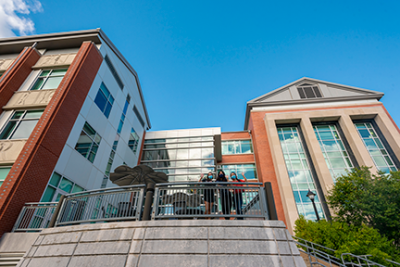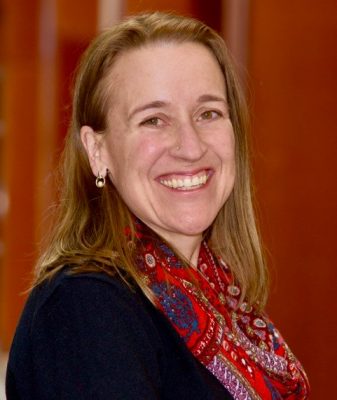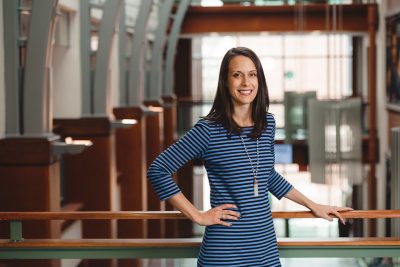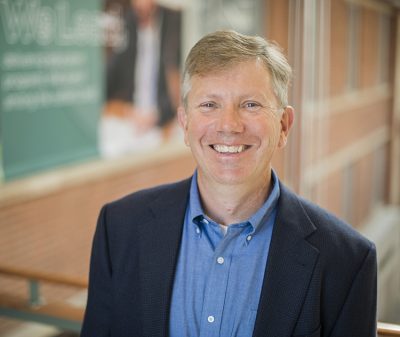
- Coordinated by Stefanie Malinoski
- Written by Ann Traynor (Assistant Dean and Certification Officer), Michele Back (Associate Professor, World Languages Education), Danielle DeRosa (Clinical Instructor, Educational Leadership), and Joseph Madaus (Professor, Educational Psychology)
- Edited by Stefanie Dion Jones
The University of Connecticut’s Early College Experience (ECE) Program allows high school students to earn UConn credits and meet general education requirements by taking college courses while still in high school. UConn’s Neag School of Education, consistently ranked as one of the top 20 public graduate schools of education in the nation, recently piloted several education courses and next year will offer courses in multiple high schools across Connecticut.
Connecting superintendents statewide with these emergent ECE opportunities, the Neag School continues to be committed to expanding access for students and families across the state, increasing the diversity of the educator workforce, and attracting high school students to the teaching profession. UConn ECE Students will have the opportunity to choose from any of the following four UConn courses dedicated to studying diverse aspects of the education field:
- EDCI 1100: If You Love It, Teach It
- EDLR 1162: Health and Education in Urban Communities
- EDLR 2001: Contemporary Issues in Sport
- EPSY 1100: Introduction to Special Education
EDCI 1100: If You Love It, Teach It
The Neag School’s EDCI 1100 course will give high school students a glimpse into the world of K-12 teaching, learning, and schooling in the U.S.. Designed to provide students with an understanding of the historical, philosophical, and social foundations of education, it also encourages them to reimagine the future of the field.

“I hope that students will not only learn how U.S. education came to be what it is today, but also how to reflect critically on these histories and philosophies, as well as how education can be transformed for the better,” says Michele Back, EDCI 1100 Faculty Coordinator and associate professor of world languages education at the Neag School. Students enrolled in this foundational course, which focuses in part on social justice, will read a diverse array of scholars and educators. Each reading will offer a unique perspective on the history of educational thought in the U.S. and on how the nation can strive for educational equity for all learners and teachers.
“Your experiences as a student for over a decade are essential contributions to this course,” Back says. “Whether you love school or not, we invite you into this community of learners and want to hear your voice!”
EDLR 1162: Health and Education in Urban Communities
The Neag School of Education is also home to UConn’s undergraduate and graduate-level academic programs in areas such as sport management, student affairs, and school leadership. Through EDLR 1162: Health and Education in Urban Communities, students will explore how poverty, culture, and identity can affect children’s health, nutrition, schooling, and opportunities for success.

Through readings, films, discussions, and service-learning opportunities, class members will analyze society’s policies, norms, and beliefs while considering how these phenomena may perpetuate injustice.
According to clinical instructor Danielle DeRosa of the Neag School, the “service-learning” aspect of EDLR 1162 “means that in addition to students learning within their high school classrooms, they will also engage in service in the community … to better understand community needs and to build relationships with others.”
The course, she adds, “offer[s] an exciting opportunity for students to make connections from the curriculum to their own lives and lived experiences, as well as current topics in society.”
EDLR 2001: Contemporary Issues in Sport
DeRosa is also Faculty Coordinator for EDLR 2011: Contemporary Issues in Sport. This course delves into sociocultural, economic, political, and other issues specific to the world of sport.
Beyond teaching students about sport as a social institution and examining sport’s impact on American culture, the course will also discuss sport at the youth, intercollegiate, professional, and international levels.
EDLR 2001 “allows students to see course concepts in action through highlighting current topics in sport,” says DeRosa. “As an example, not only will students learn about sport and the intersection of gender and race, but they will also discuss current examples of gender and racial inequities within sport at multiple levels. This will invite students to think about their own experiences as participants in sport, as well as consumers of sport.”
Both this course and EDLR 1162, according to DeRosa, intend to “engage students in understanding the complexities of society as it relates to justice, education, health, and sport, as well as provide a space for students to have critical conversations with each other.”
EPSY 1100: Introduction to Special Education
Students specifically interested in the realm of special education can obtain an overview of this field in American K-12 schools via EPSY 1100: Introduction to Special Education.
The course’s key topics will include the various types of disabilities that are served in schools nationwide and the laws that support students with disabilities and their families. In addition, UConn ECE Students will learn about the career options available to them in this field beyond traditional classroom teaching — school psychologists, school counselors, and school social workers among them.

“All of these professional paths,” says EPSY 1100 Faculty Coordinator Joseph Madaus, “play important roles in ensuring that the students are properly identified and receive the right services.”
Madaus, a professor at the Neag School in the Department of Educational Psychology, says “he hopes that those who take this course will learn about the many strengths and talents that students with disabilities bring to their schools and communities.”
EPSY 1100 also will challenge students to “think about their existing beliefs about students with disabilities and will come to understand that many of the challenges these students experience can be addressed by focusing on their strengths,” Madaus says.
For more information about the Neag School’s courses in education, please visit ece.uconn.edu/education.